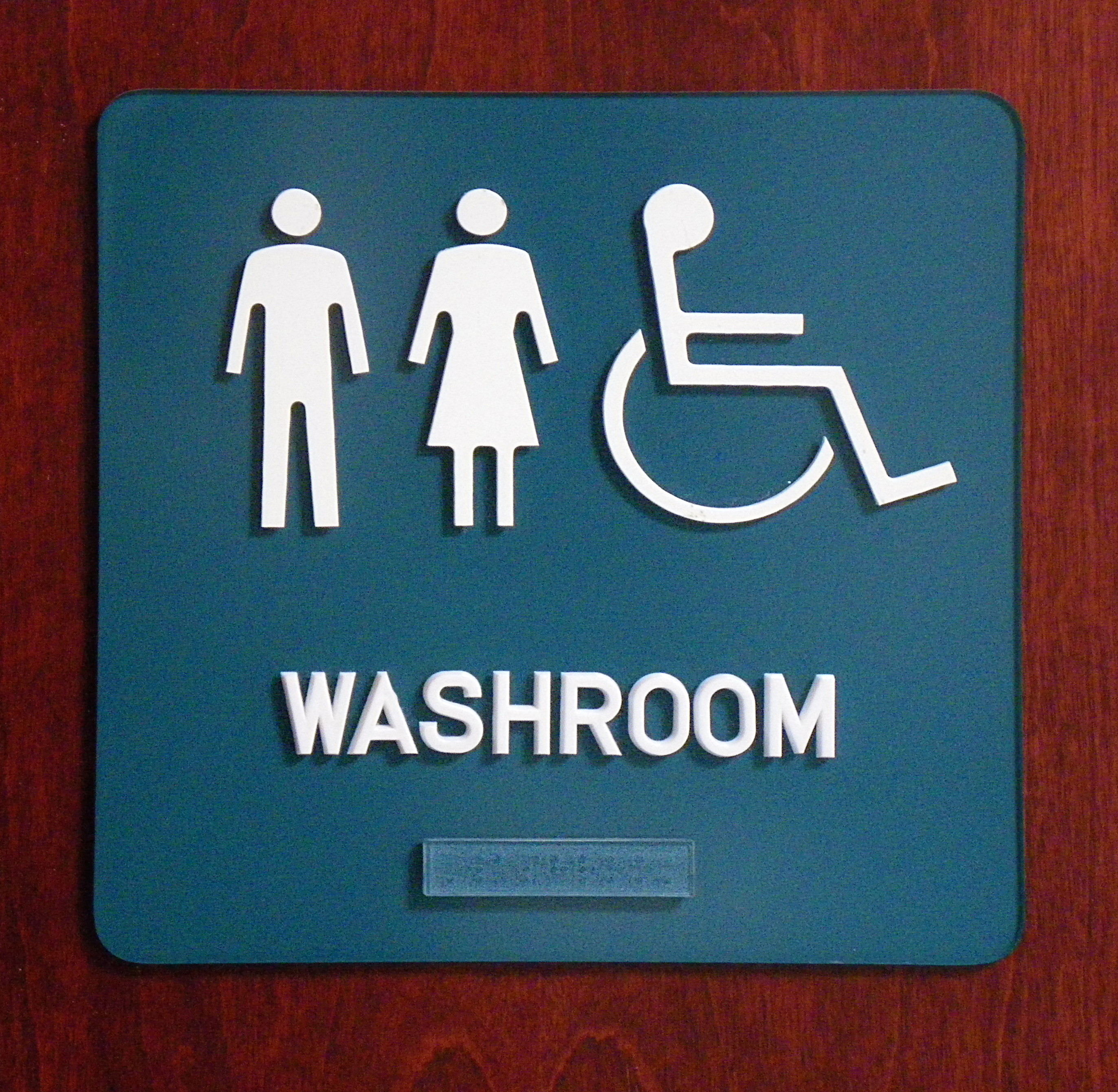By Jess Wind (The Cascade) – Email
Print Edition: July 4, 2014
The Vancouver School Board (VSB) has approved the integration of gender-free bathrooms in K-12 schools in the district. The move comes as one of many revisions to the sexual orientation and gender identities policy for the VSB, encompassing topics that range from the allowance of gender-non-conforming kids to dress how they like to recognizing the right of transsexual kids to be addressed by their preferred gender pronoun.
Basically, kids that don’t fit into the socially constructed blue boxes for boys and pink boxes for girls may now have a place to take a shit without feeling like they are in the “wrong” room.
The changes were made in June, with the ensuing debate calling out issues of privacy for students as well as other arguments regarding parental rights and cultural norms.
VSB clearly states the reasons for the change within the language of the policy: “The use of washrooms and change rooms by trans students shall be assessed on a case-by-case basis with the goals of maximizing the student’s social integration, ensuring the student’s safety and comfort, minimizing stigmatization and providing equal opportunity to participate in physical education classes and sports.”
This allows transgendered students the safety, social freedoms, and psychological development that should be experienced by every child in the public education system.
However, speakers against the change are concerned about the privacy of their young children in gender-free bathrooms and change rooms.
Privacy from what? Do you think that little boys and little girls will be squatting over a community toilet? Global News’ coverage of the story included footage of what we’re to assume is an adolescent male and an adolescent female washing their hands together at a public sink, the stalls reflected in the mirrors behind them. This implies a neutral hand-washing space in the gender-free bathroom scenario. However, the policy doesn’t describe this situation at all.
“The Board will strive to make available single stall gender-neutral washrooms at all school locations and worksites,” reads the VSB policy. It doesn’t get much more private than your own gender neutral stall — if anything, this move will allow more privacy to any students wishing to make use of the single stall option. For everyone else, there is still the traditional locking stall and community sink option.
Ann Travers, associate professor of sociology at SFU, spoke to Global BC about the invisibility felt by gender non-conforming kids and transgender kids in schools. While these children are far from the majority, school is still hell for them on a daily basis. Most of us had fears in elementary school of accidentally walking into the “wrong” bathroom out of absentmindedness. These kids live with that sense of uncertainty every day, because society has long since developed a binary system of gendered bathrooms.
“It’s really basic daily things,” Travers said. “Knowing that when you have to go to the bathroom that you can find a bathroom and you can use it and that’s the end of it.”
There it is, broken down. Using the bathroom is not a gendered matter. Everyone uses the toilet, and no one should feel stigmatized for the room in which they choose to do so.
Throughout the policy it is clear VSB’s goal was inclusiveness — to allow transgendered students the freedom to choose to be themselves, to embrace their identity as opposed to stifling it until the far-off graduation day.
Inclusiveness is something board trustee Ken Denike comments on in a statement for Global News following the policy’s adoption. Denike and his fellow trustee member Sophia Woo were ejected from the Non-Partisan Association caucus after they made attempts to delay the policy. In a statement about their removal, the party identified their lack of sensitivity to the LGBTQ community and an inability to work with the caucus as reasoning. They were the only two to vote against the policy.
“I can’t believe the Vancouver School Board, [which] talks about inclusiveness, [is] not translating a policy that affects every student [and] every parent in this district,” he tells Global. Essentially, his claim is a lack of consultation on the policy — though CBC News reported three separate, well-attended consultation meetings prior to the decision.
One man opposed to the policy change claimed gender identity is a private issue, that it shouldn’t be public.
Gender identity isn’t private, because society says so. It is permitted to be private (and by this I mean unscrutinized) if you fit into the gender boxes. However, if you stray outside those boxes, your gender identity is forced into the public eye for judgement. It’s this construction in our society that led Erving Goffman to use a theatre analogy to explain how we present ourselves to people. The front-stage (public) self is the one society sees and judges; non-conformists are judged and labelled as deviant. The backstage self (private) is the one people keep hidden to avoid the whole judgement by society issue. Is it really fair to ask kids, who deal with all sorts of other growing-up garbage, to be conscious of the self they are projecting to the public when all they need to do is take a piss?
“Your gender is about yourself,” said the same opposed man, and here he is right, but for the wrong reasons. Gender expression is about the self, about becoming a well-adjusted human being in our maladjusted society. This policy is, as far as I can tell, based on the language included, as inclusive as it gets for someone trying to navigate the messy world of gender identity. As a transgender or gender non-conforming student in Vancouver’s public education system, you now have the power to take a shit without worrying about the sign on the door telling you it’s wrong.


